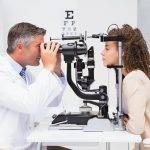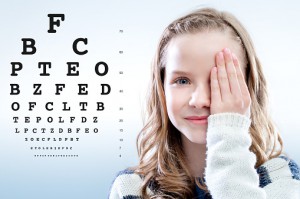March is Save Your Vision Month
How often should you have your vison checked?
A) Every year
B) Every two years
C) Every three years
D) Only when something is wrong
According to the American Optometric Association a healthy person should have a regular eye exam once a year. People who have any conditions that may affect their eyesight, for example diabetes, glaucoma, macula-degeneration, should be examined more frequently.
If you would like to schedule an appointment with an eye doctor at Flushing Hospital, please call 718-670-5486.
All content of this newsletter is intended for general information purposes only and is not intended or implied to be a substitute for professional medical advice, diagnosis or treatment. Please consult a medical professional before adopting any of the suggestions on this page. You must never disregard professional medical advice or delay seeking medical treatment based upon any content of this newsletter. PROMPTLY CONSULT YOUR PHYSICIAN OR CALL 911 IF YOU BELIEVE YOU HAVE A MEDICAL EMERGENCY.



